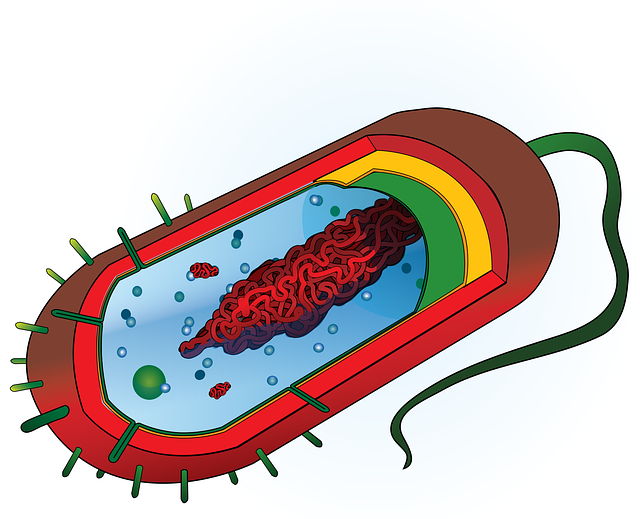Optimizing stem cell culture media formulations is a key area of stem cell research, enabling tailored environments for cellular viability and proliferation. Driven by ethical considerations and stability testing, advancements in media development enhance consistency and reliability. Tailored media, especially for hematopoietic stem cells (HSCs), facilitates expansion and clinical applications. Strict quality control, meticulous monitoring, and specialized media blends ensure stem cell vitality and long-term stability. Stem cell culture technologies revolutionize fields like regenerative medicine and drug discovery, with precise controls over cellular environments, accurate models, and consistent results facilitated by serum-free media and established quality assessment guidelines. Cost-effective media increases accessibility, fostering innovation and accelerating progress in stem cell research.
“Unleash the power of advanced cell culture techniques and revolutionize your research or therapeutic applications! This comprehensive guide explores cutting-edge strategies for optimizing stem cell culture media formulations, enabling rapid cellular expansion while maintaining stringent quality control. Discover innovative methods to harness the potential of stem cells, from tailoring media recipes to ensuring consistent, high-quality results. Explore real-world applications that showcase the transformative impact of advanced stem cell culture technologies.”
- Optimizing Stem Cell Culture Media Formulations
- Advanced Techniques for Cellular Expansion
- Ensuring Quality Control in Cell Culture
- Applications of Stem Cell Culture Technologies
Optimizing Stem Cell Culture Media Formulations

Optimizing stem cell culture media formulations is a critical aspect of stem cell research, as the medium plays a pivotal role in maintaining cellular viability and promoting proliferation. Scientists are continually exploring various components and supplements to tailor the media for specific stem cell types, aiming to create an ideal environment that mirrors natural physiological conditions. This involves careful consideration of factors like nutrient availability, growth factors, and signaling pathways that support self-renewal and pluripotency.
The ethical considerations in media selection, such as minimizing use of animal-derived components, are driving innovation towards alternatives to fetal bovine serum (FBS). This shift not only addresses concerns related to contamination and species-specific variations but also opens doors for developing more consistent and reliable stem cell culture systems. Additionally, stability testing of the media is essential to ensure that the formulations maintain their integrity over time, which is crucial for long-term experiments and applications in clinical settings.
Advanced Techniques for Cellular Expansion

Advanced techniques for cellular expansion have revolutionized stem cell culture, enabling researchers to overcome previous limitations and achieve remarkable growth. One key area of focus is optimizing stem cell culture media. Customized media formulations play a crucial role in supporting the survival and proliferation of these versatile cells. Researchers can tailor media supplementation to meet specific needs, whether it’s enhancing media supplementation for stem cell survival or creating specialized media formulations for stem cell banking.
For instance, tailored media for hematopoietic stem cells (HSCs) facilitates their expansion in vitro, providing an abundant source of cells for clinical applications. This advancement, coupled with improved methods for maintaining cell identity and functionality, has opened new avenues in regenerative medicine, allowing for the development of potent therapeutic strategies based on these remarkable cells.
Ensuring Quality Control in Cell Culture

Maintaining strict quality control is paramount in advanced cell culture techniques, especially when dealing with delicate and valuable cells like those used for stem cell therapy. Ensuring consistent and optimal conditions throughout the process is crucial for successful results. This involves meticulous monitoring of various factors that can impact cell health and growth, such as temperature, humidity, pH levels, and most importantly, the composition of stem cell culture media.
The media used for stem cell culture plays a pivotal role in optimizing stem cell expansion in vitro. Specialized stem cell media blends are designed to meet the unique nutritional requirements of these cells, promoting their proliferation and maintaining their pluripotency. Careful consideration of media components, including growth factors, cytokines, and essential amino acids, is vital to support the vitality and long-term stability of stem cells. These tailored media formulations contribute to successful stem cell therapy media considerations, ensuring that the final product meets the highest standards of quality and safety.
Applications of Stem Cell Culture Technologies

Stem Cell Culture Technologies have expanded the possibilities in various fields due to their unique capabilities. One of the key applications lies in regenerative medicine, where stem cells are harnessed for tissue engineering and organ transplantation. Advanced culture techniques enable the cultivation of these versatile cells in a controlled environment, allowing researchers to develop specialized stem cell culture media tailored to meet specific cellular needs. This precision in media formulation is crucial for promoting optimal cell growth, differentiation, and functionality.
Additionally, these technologies play a significant role in drug discovery and development. By using serum-free stem cell growth medium, researchers can mimic the in vivo environment, providing a more accurate model for studying cell behavior and screening potential therapeutic compounds. Stem cell culture quality assessment guidelines ensure consistent and reliable results, which is essential for translating laboratory findings into effective clinical applications. Moreover, the ability to prepare cost-effective stem cell media contributes to making these advanced techniques more accessible, fostering innovation and accelerating progress in stem cell research.
Advanced cell culture techniques, encompassing optimized stem cell culture media formulations, innovative expansion methods, and rigorous quality control measures, have unlocked immense potential in various applications. By fostering efficient cellular growth and ensuring consistent quality, these advancements are revolutionizing research and development in biomedicine. Incorporating cutting-edge stem cell culture technologies allows for the tailored manipulation of cells, opening doors to groundbreaking discoveries and novel therapeutic approaches.














